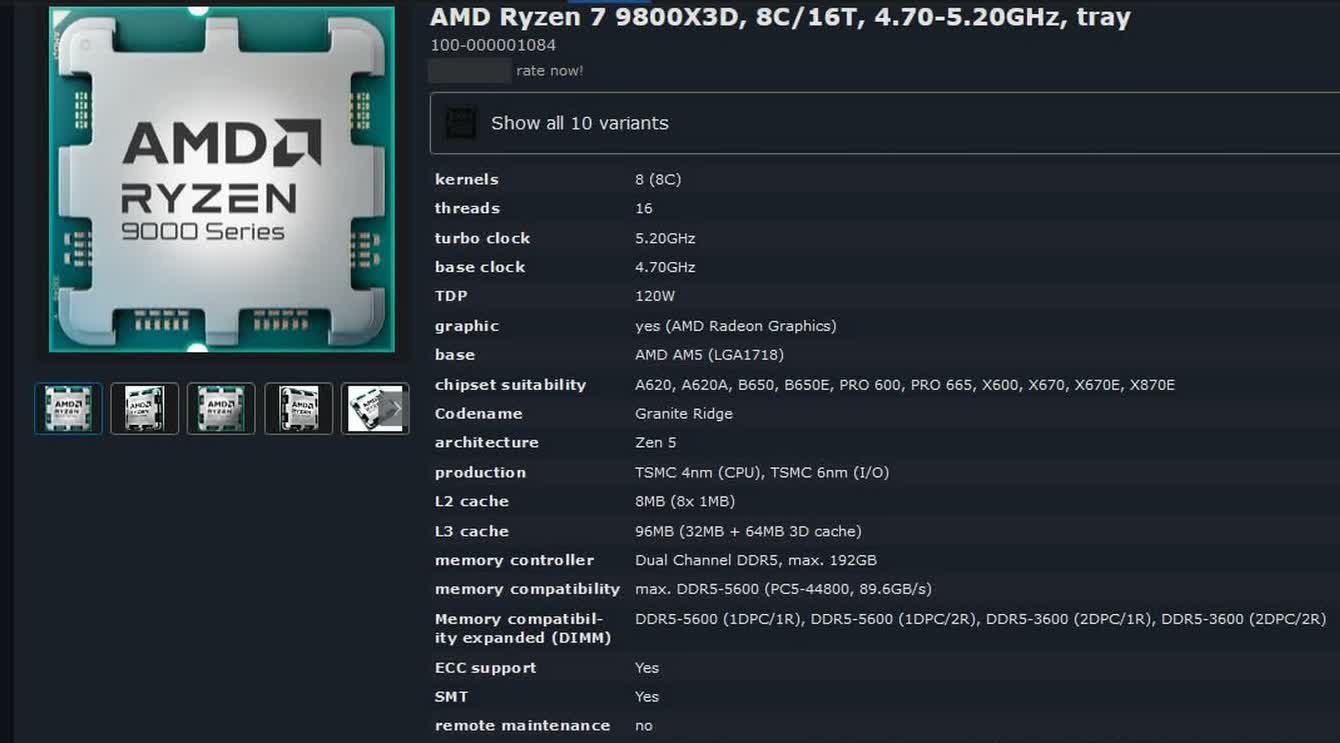Rumor mill: AMD is gearing up to launch its first Ryzen 9000 processor featuring 3D V-Cache on November 7, but multiple leaks have already provided insights into its performance. A new, extensive leak appears to confirm the rumored specifications of the Ryzen 7 9800X3D, expected to be the flagship CPU in AMD’s upcoming lineup.
According to a listing on the European price comparison website Geizhals, the Ryzen 7 9800X3D will feature eight Zen 5 cores and 16 threads. It reportedly offers a 4.7 GHz base clock and a 5.2 GHz boost clock – both higher than those of the 7800X3D, which has a 4.2 GHz base clock and a 5.0 GHz boost clock. The 9800X3D is also expected to have a 120W TDP, matching the 7800X3D.
As for cache, the 9800X3D is listed with 104MB of total cache: 8MB of L2 (8 x 1MB) and 96MB of L3 (32MB internal + 64MB stacked). It will support up to 192GB of dual-channel DDR5-5600 memory at one DIMM per channel. Additional specs include support for 28 PCIe 5.0 lanes (24 accessible) and an RDNA 2 “Granite Ridge” iGPU clocked up to 2.2 GHz.

Additionally, the leak suggests that the upcoming Ryzen processors will support all AMD 600-series motherboards, including the A620 and PRO workstation lines. It also appears that the 9800X3D will use the same “GNR-B0” silicon as existing models. Notably, the Tjmax has been raised to 95 degrees Celsius from 89 degrees on the 7800X3D, aligning it with the other Ryzen 9000 (non-X3D) CPUs.
The listing confirms that the 9800X3D will feature an unlocked multiplier, which is welcome news for overclocking enthusiasts. If accurate, this would represent a significant shift from the previous generation of 3D V-Cache CPUs, which had locked multipliers and didn’t support conventional overclocking.
AMD is expected to release official benchmarks for the 9800X3D next week. However, recent leaks indicate it could deliver up to eight percent higher gaming performance than the Ryzen 7 7800X3D. The leaked document also reaffirmed compatibility with all AM5 motherboards, including models featuring the X870E/X870 and X670(E)/B650(E) chipsets.

